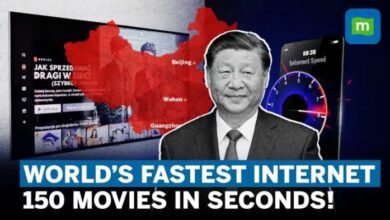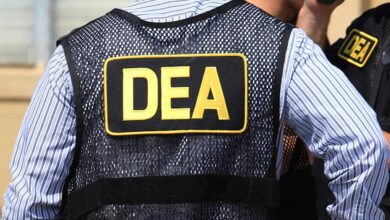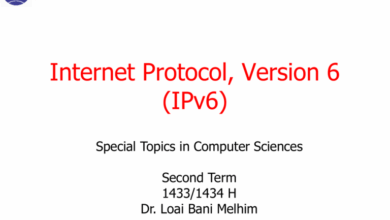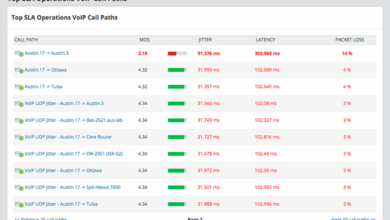RIAA and ISPs Lock Horns Before Congress A Showdown
RIAA and ISPs lock horns before Congress, escalating a long-standing conflict over online music distribution. The battle pits the Recording Industry Association of America (RIAA) against internet service providers (ISPs), with both sides fiercely defending their positions. This clash before Congress promises to be a pivotal moment, shaping the future of online music consumption and potentially impacting internet access for millions.
The core of the dispute revolves around the RIAA’s demand for ISPs to proactively filter and remove copyrighted music from their networks. This demand is met with resistance from ISPs who argue that such a burden is disproportionate, expensive, and potentially stifles innovation. Each side argues that their position is in the best interest of the music industry and internet users, creating a complex and multifaceted legal and technical battle.
Background of the Dispute
The ongoing conflict between the Recording Industry Association of America (RIAA) and internet service providers (ISPs) stems from a fundamental disagreement over copyright infringement on digital platforms. This tension has a long history, evolving from the early days of file-sharing to the modern era of streaming services and peer-to-peer networks. The core issue revolves around the responsibility for content hosted on networks and the practical implementation of copyright enforcement in a digital environment.This dispute highlights the complexities of balancing innovation in technology with the protection of intellectual property rights.
The evolving nature of the internet and digital media necessitates ongoing dialogue and adjustments in legal frameworks to ensure fair access and equitable protection for all stakeholders.
Historical Overview of the Relationship
The relationship between the RIAA and ISPs has been fraught with challenges since the rise of peer-to-peer file-sharing networks in the late 1990s. Early efforts by the RIAA to pursue legal action against users sharing copyrighted material prompted ISPs to adopt different approaches to handling copyright infringement. The lack of clear legal precedents in the digital realm further complicated the situation.
Key Events and Legal Precedents
The landmark case ofMGM Studios, Inc. v. Grokster, Ltd.* (2005) significantly impacted the legal landscape. This ruling established that companies that designed and operated file-sharing programs could be held liable for copyright infringement if they were aware of and intended to facilitate such activity. This decision highlighted the responsibility of technology platforms in controlling the use of their networks.Another critical event was the establishment of the Digital Millennium Copyright Act (DMCA) in 1998.
This legislation aimed to address copyright infringement in the digital environment, introducing provisions regarding the takedown of infringing content and imposing obligations on ISPs. However, the DMCA’s implementation and interpretation have been subject to ongoing debate and legal challenges.
Different Perspectives and Motivations
The RIAA advocates for stronger enforcement measures against copyright infringement, viewing it as essential for protecting artists’ rights and the music industry’s economic viability. They believe that ISPs have a crucial role to play in preventing infringement on their networks.ISPs, on the other hand, often prioritize the freedom of speech and the openness of the internet. They argue that imposing heavy restrictions on content hosted on their networks could stifle innovation and limit user access to information.
They frequently cite the burden of proactively monitoring and filtering all content as an insurmountable task.
Potential Impacts on the Music Industry and Internet Access
The outcome of this conflict could significantly affect the music industry. Increased pressure on ISPs to proactively monitor and remove copyrighted material could lead to higher costs for users. This could potentially raise concerns regarding the cost of internet access. Moreover, it could lead to the development of new filtering technologies, which could impact user privacy.The impact on internet access could include restrictions on user freedoms.
Stricter regulations could potentially limit the availability of content or potentially lead to censorship, particularly for content that is deemed controversial or legally challenging. These concerns highlight the need for a balanced approach that protects intellectual property rights while upholding the principles of free expression and access to information on the internet.
Current Issues at Stake
The ongoing dispute between the Recording Industry Association of America (RIAA) and Internet Service Providers (ISPs) centers on a fundamental disagreement over responsibility for copyright infringement on online platforms. This conflict, rooted in differing interpretations of legal obligations and technical capabilities, has significant implications for both the music industry and the internet ecosystem. The stakes are high, with the potential to reshape how online content is accessed and distributed.The RIAA argues that ISPs are effectively enabling copyright infringement by failing to adequately address the problem of users downloading or sharing copyrighted material.
Conversely, ISPs contend that they are merely conduits for information and not responsible for the actions of their users. The central question is: who bears the burden of responsibility in the digital age for illegal activity occurring on their networks? This issue transcends simple commerce and delves into the complexities of intellectual property rights in a rapidly evolving technological landscape.
Specific Issues Driving the Dispute
The core of the disagreement revolves around the practical application of Digital Millennium Copyright Act (DMCA) provisions. The RIAA insists that ISPs have a legal obligation to actively monitor and block users engaging in copyright infringement. They cite instances where ISPs have failed to adequately address these issues, leading to the continued availability of infringing material. The RIAA argues that this inaction facilitates copyright violations and undermines the music industry’s ability to protect its intellectual property.
Arguments and Demands of Each Party
- The RIAA demands that ISPs take more proactive steps to identify and remove copyrighted material from their networks. This includes enhanced monitoring of user activity and more robust measures to block access to infringing content. They believe that the current measures are insufficient and that ISPs are not taking their responsibilities seriously, effectively hindering the music industry’s efforts to protect its creative works.
They cite cases where ISPs have been slow to respond to takedown notices, resulting in continued availability of infringing content.
- ISPs, on the other hand, argue that they are merely conduits for information and should not be held responsible for the actions of their users. They contend that the burden of policing user activity would be immense and practically impossible to fulfill. They emphasize the technical challenges involved in monitoring and filtering vast amounts of data, as well as the potential for censorship and violations of user privacy.
They suggest that a system of accountability that places the onus on ISPs would set a dangerous precedent.
Legal and Technical Aspects of the Disagreement
The legal framework surrounding this dispute is complex, rooted in the DMCA. This act grants copyright holders the right to seek court orders demanding ISPs take down infringing content. However, the specific wording of the DMCA and the interpretation of its provisions have been a source of contention. The RIAA argues that the current legal interpretation does not adequately hold ISPs accountable, whereas ISPs maintain that they are not designed or equipped to be the primary enforcers of copyright law.The technical aspect of the dispute revolves around the feasibility of implementing widespread content filtering and monitoring systems.
The RIAA and ISPs are reportedly locking horns before Congress, a fascinating development. Meanwhile, Microsoft is planning a media center PC expansion into Europe and Asia, potentially signaling a shift in consumer tech trends. This expansion, detailed in a recent report on microsoft plans media center pc expansion in europe asia , could influence the ongoing negotiations between the RIAA and ISPs, particularly as it relates to digital content access.
This whole situation is definitely something to watch as the congress hearing approaches.
The sheer volume of data transmitted over internet networks presents a significant hurdle. Furthermore, the dynamic nature of the internet, with constant changes in IP addresses and user behavior, makes it challenging to maintain effective monitoring. The costs associated with implementing and maintaining these systems are also a concern for ISPs.
Potential Consequences of Each Side’s Position
- If the RIAA prevails, ISPs might face significant legal and financial repercussions for not actively policing their networks. This could lead to increased costs for ISPs, impacting their pricing and service offerings. Furthermore, the precedent set could lead to a broader expansion of ISP liability for other forms of intellectual property infringement. This scenario could significantly alter the internet landscape, leading to increased costs and potential limitations on user access to information.
- Conversely, if ISPs are successful in their arguments, it could create a less secure environment for copyright holders. This could result in a decline in the availability of legitimate music streaming services and the continued proliferation of piracy. This scenario could severely impact the music industry’s ability to generate revenue and sustain its creative ecosystem.
Potential Solutions and Outcomes
The clash between the Recording Industry Association of America (RIAA) and internet service providers (ISPs) before Congress highlights a fundamental tension in the digital age: balancing copyright protection with the free flow of information. Finding common ground, while respecting the rights and responsibilities of both parties, is crucial for a sustainable solution. Potential resolutions require a nuanced approach that considers the economic implications for both artists and internet users.Navigating this conflict necessitates a framework that acknowledges the legitimate concerns of all stakeholders.
A clear understanding of potential compromises and concessions, along with viable alternative dispute resolution mechanisms, will be essential for reaching a mutually acceptable outcome. The long-term implications of various resolutions must be considered to ensure a fair and equitable solution for the future of digital content.
Potential Resolutions Framework
A comprehensive framework for resolving the conflict must prioritize a balance between protecting intellectual property and maintaining the accessibility and affordability of internet services. This includes clear guidelines for content identification, takedown procedures, and financial compensation. Transparency in the process is paramount to build trust and avoid potential biases.
Possible Compromises and Concessions
| RIAA Concerns | ISP Concerns | Potential Compromises |
|---|---|---|
| Protecting artists’ copyrights and ensuring fair compensation for their work. | Maintaining the free flow of information and preventing undue burdens on internet users and ISPs. | Developing a tiered system for compensation based on the nature and extent of infringement. This could include a combination of voluntary licensing agreements and mechanisms for determining fair market value for infringing content. |
| Ensuring effective mechanisms for identifying and removing infringing content. | Minimizing disruption to users’ online experience and avoiding excessive monitoring. | Implementing advanced filtering technologies that prioritize user experience while still effectively addressing copyright violations. Utilizing a combination of automated systems and human oversight can provide a balance. |
| Establishing clear legal pathways for pursuing copyright infringement. | Maintaining the operational flexibility of their networks and avoiding excessive liability. | Negotiating clear contractual agreements that define the responsibilities of both parties in handling copyright infringement. This includes outlining specific processes for dispute resolution and liability limitations. |
Alternative Dispute Resolution Mechanisms
Utilizing alternative dispute resolution (ADR) methods, such as mediation and arbitration, could facilitate a smoother resolution process. Mediation allows both parties to express their concerns and interests in a neutral setting, potentially leading to a mutually agreeable settlement. Arbitration provides a binding decision by a neutral third party, offering a more structured approach to resolving disputes. The use of industry-specific panels or experts in intellectual property and internet law could further enhance the effectiveness of these processes.
Potential Long-Term Implications
The outcomes of this conflict have significant implications for the future of the digital economy. A resolution that effectively balances copyright protection with internet freedom could foster innovation and economic growth. Failure to reach a consensus could stifle the growth of online content creation and hinder the development of new technologies. Real-world examples, such as the historical development of fair use doctrines and the ongoing evolution of digital rights management (DRM) systems, demonstrate the importance of finding a practical solution.
Public Perception and Impact

The conflict between the Recording Industry Association of America (RIAA) and Internet Service Providers (ISPs) over copyright infringement is not just a legal battle; it’s a clash of public perceptions and economic interests. This struggle has far-reaching consequences, impacting consumer access to music, the entertainment industry, and the broader digital economy. Public sentiment is often divided, with various stakeholders holding differing opinions and concerns.The conflict fuels a debate about the balance between intellectual property rights and the free flow of information in the digital age.
Different groups have contrasting views on the appropriate measures to tackle copyright infringement, which creates a complex and often contentious public discussion. The impact on consumers, businesses, and the broader digital ecosystem is significant and multifaceted.
Public Perception of the Conflict
Public perception of the RIAA and ISPs’ conflict is generally negative, with many consumers feeling caught in the middle. The perception of the RIAA as a “copyright bully” is widespread, often associated with aggressive tactics targeting individuals for minor infringements. Conversely, ISPs are perceived as potentially ceding control over their networks to enforce copyright restrictions. This perception can erode public trust in both parties and raise concerns about potential censorship.
Consequences for Consumer Access to Music
The conflict has the potential to significantly impact consumer access to music. Increased pressure on ISPs to filter or block access to copyrighted material could result in a reduction in the availability of music, especially for consumers who rely on file-sharing or peer-to-peer networks. This could limit choices and potentially lead to a less vibrant music ecosystem. Similar restrictions on file-sharing have occurred in the past, resulting in consumers seeking alternative platforms, which may negatively affect revenue streams for legitimate music distributors.
Economic Impacts on Different Sectors
The conflict’s economic impacts are diverse and substantial. The entertainment industry, particularly the music sector, faces potential revenue losses if consumers shift to alternative platforms. ISPs could face financial pressure if they incur significant costs associated with filtering or blocking content. Furthermore, the technology sector, particularly companies involved in music streaming or file-sharing, might experience either growth or contraction depending on the outcome of the conflict.
This could impact the wider economy, influencing consumer spending habits and potentially creating a ripple effect across related industries.
Examples of Public Reaction to Similar Conflicts
Historically, similar conflicts involving copyright and digital platforms have elicited strong public reactions. The early days of Napster, for example, saw intense debate about fair use and the rights of consumers. The public outcry and subsequent legal battles ultimately shaped the development of the digital music industry. More recently, debates about online piracy and the enforcement of copyright in various media have spurred public discussion and legislative action.
These examples demonstrate that public opinion can significantly influence the outcome of such conflicts, often pushing for a balance between protecting intellectual property and fostering innovation.
Congressional Role and Potential Legislation
Congress plays a crucial role in mediating disputes between the Recording Industry Association of America (RIAA) and Internet Service Providers (ISPs). Their authority stems from the power to create and modify laws that govern these industries, and they can act as arbiters in conflicts, aiming to balance the interests of content creators and consumers. The potential for legislation to address the issues at hand is significant, impacting both the creative economy and the digital landscape.
Congressional Authority in the Dispute
Congress possesses the constitutional power to regulate interstate commerce, a broad mandate that encompasses digital content distribution and internet access. This power allows them to craft legislation impacting both the rights of copyright holders and the responsibilities of ISPs. The judiciary’s role in interpreting these laws further shapes the conflict’s outcome. Through legislation, Congress can influence the balance of power between the parties, clarifying rights and responsibilities.
Potential Legislative Approaches
Several legislative avenues could address the RIAA-ISP conflict. One approach involves strengthening copyright protections online, possibly through stricter penalties for copyright infringement. Another path could focus on incentivizing the development of fair use guidelines for online content sharing. A third approach might center on creating clearer legal frameworks for ISP liability in cases of copyright infringement. Each of these approaches offers unique strengths and weaknesses, affecting the balance of power in different ways.
Comparison of Legislative Approaches
| Legislative Approach | Strengths | Weaknesses |
|---|---|---|
| Strengthening Copyright Protections Online | Potentially deters infringement, increasing revenue for creators. | May stifle innovation and limit access to content. Could create a disproportionate burden on users, possibly leading to litigation against everyday consumers. |
| Incentivizing Fair Use Guidelines | Could encourage responsible content sharing, fostering creativity. | Defining fair use criteria can be challenging, potentially leading to ambiguity and inconsistent application. |
| Clarifying ISP Liability | Could reduce ambiguity regarding ISP responsibilities, potentially creating a more predictable environment for both creators and users. | Might be seen as overly burdensome on ISPs, possibly leading to increased costs for users. |
Impact on Power Balance
The specific legislation chosen will significantly impact the balance of power between the RIAA and ISPs. Legislation that prioritizes copyright protection could shift power towards content creators. Legislation focused on fair use or ISP liability could tip the scales in favor of users and online platforms. For example, legislation emphasizing copyright protection could lead to increased takedown notices and potentially higher costs for ISPs, affecting their ability to operate.
On the other hand, legislation that emphasizes user rights could make it more challenging for the RIAA to pursue copyright infringement cases, affecting their ability to enforce copyright.
Technical and Legal Implications
The digital age has dramatically altered the landscape of copyright enforcement, creating a complex interplay of technical challenges and legal precedents. This conflict between the RIAA and ISPs highlights the difficulties in balancing the rights of copyright holders with the need for a free and open internet. The very nature of digital content, its instantaneous replication, and global accessibility necessitate new approaches to safeguarding intellectual property.The technical challenges in enforcing copyright protections online are significant and multifaceted.
The RIAA and ISPs are squabbling before Congress, a pretty heated debate about online piracy. Meanwhile, IBM is making waves with its plans to build the world’s fastest Linux supercomputer, which could revolutionize data processing. This powerful new machine, detailed in ibm to build worlds fastest linux supercomputer , hints at the potential for innovative solutions to address issues like copyright infringement, which will likely fuel the ongoing discussions between the RIAA and ISPs as they navigate this complex digital landscape.
Identifying and tracking unauthorized copies of copyrighted material across vast networks is a formidable task. The sheer volume of data transmitted daily, coupled with sophisticated methods of circumventing copyright protection measures, makes comprehensive monitoring virtually impossible. Furthermore, the decentralized nature of the internet presents unique difficulties in locating and addressing infringement. The difficulty in determining the precise location of infringement and the lack of clear digital footprints often complicate the process.
Technical Challenges in Online Copyright Enforcement
Digital content’s inherent nature and the sheer scale of the internet present substantial technical hurdles. Identifying and tracking infringement across massive datasets requires advanced algorithms and sophisticated data analysis. The continuous evolution of technology, with new file formats, streaming services, and peer-to-peer networks, necessitates a dynamic approach to monitoring and enforcement. Furthermore, the speed of content dissemination can quickly overwhelm traditional enforcement methods.
Legal Precedents Governing Copyright Infringement in Digital Spaces
Copyright law, while established, has had to adapt to the unique characteristics of digital media. The proliferation of online platforms and the complex relationships between users, content providers, and internet service providers have created new challenges for courts. Case law addressing copyright infringement in digital environments, including instances of peer-to-peer file sharing and streaming services, provides a crucial framework for navigating the legal complexities of online infringement.
Table of Legal Precedents and Relevance to the Conflict
| Legal Precedent | Relevance to RIAA-ISP Conflict |
|---|---|
| Sony Corp. of America v. Universal City Studios, Inc. (1984) | Established fair use doctrine, relevant to the debate about user rights and acceptable limits on online file sharing. |
| MGM Studios Inc. v. Grokster, Ltd. (2005) | Established the liability of companies enabling copyright infringement, potentially applicable to ISPs facilitating large-scale unauthorized file sharing. |
| Chamberlain Group, Inc. v. Skylink Tech., Inc. (2000) | Deals with contributory infringement, providing a potential legal avenue for holding ISPs accountable if they have knowledge of ongoing infringement and fail to take reasonable action. |
| A&M Records, Inc. v. Napster, Inc. (2001) | This landmark case established the potential liability of online platforms facilitating copyright infringement. It directly impacts the arguments surrounding ISPs’ roles and responsibilities in preventing unauthorized file sharing. |
Legal Ramifications of Proposed Solutions, Riaa and isps lock horns before congress
Various solutions to the conflict between the RIAA and ISPs have significant legal implications. These range from increased ISP monitoring and filtering to mandatory takedown policies. The legal ramifications of each approach need careful consideration to avoid unintended consequences, such as stifling innovation, limiting user rights, or creating undue burdens on ISPs. Furthermore, potential legal challenges to these solutions, focusing on issues like free speech and fair use, could significantly shape their implementation and effectiveness.
Specific proposed solutions will inevitably result in different legal outcomes, with some solutions potentially facing legal challenges due to their potential impact on free speech and fair use.
Global Context
The RIAA and ISPs’ dispute over copyright enforcement in the digital age isn’t an isolated American phenomenon. Similar conflicts play out globally, reflecting the universal struggle to balance innovation and creativity with the need for robust copyright protection in a rapidly evolving digital landscape. This global perspective underscores the need for international cooperation and adaptable legal frameworks to address these complex issues.This global context highlights the inherent challenges in balancing the rights of content creators with the interests of internet users and providers.
The RIAA and ISPs are reportedly locking horns before Congress, a battle likely fueled by the ongoing debate over online piracy. This fight highlights the complex relationship between digital content creators and consumers. The future of digital consumption, including the rise of rugged computing devices for various applications, is a key component in understanding this dynamic. For a deeper dive into how rugged computing is shaping the consumer trajectory, check out this insightful piece on rugged computing the consumer trajectory.
Ultimately, the RIAA and ISPs’ conflict reflects broader questions about intellectual property and the ever-evolving digital landscape.
Different countries have different approaches, some more stringent in copyright enforcement than others, leading to a patchwork of regulations that can be difficult to navigate. Understanding these international dynamics is crucial to comprehending the potential ramifications of this US dispute.
Comparison to Similar Disputes in Other Countries
Various countries have witnessed similar conflicts between copyright holders and internet service providers. These disputes often center on the responsibility for copyright infringement on their platforms. For example, the ongoing debate in Europe about the liability of online platforms for user-generated content demonstrates a parallel concern. The German approach, with its emphasis on filtering and takedown mechanisms, contrasts with the more laissez-faire approach adopted by some other nations.
Global Perspective on Copyright Enforcement and Digital Rights
The global landscape of copyright enforcement and digital rights is characterized by a complex interplay of national laws and international agreements. International treaties, like the World Intellectual Property Organization (WIPO) treaties, provide a framework for copyright protection, but their application and interpretation can vary significantly between jurisdictions. The enforcement of these rights in the digital realm poses unique challenges.
International Legal Frameworks
International legal frameworks, including the WIPO treaties and bilateral agreements, attempt to harmonize copyright enforcement across borders. However, these frameworks often lack specific provisions for digital environments, leading to ambiguity and variations in national interpretations. The absence of a globally unified approach to online copyright infringement creates a fertile ground for disputes.
Examples of Similar Conflicts and Outcomes
Several jurisdictions have faced similar conflicts between content providers and online platforms. For instance, the Australian Copyright Amendment Act of 2019 aimed to address online copyright infringement, leading to a complex debate about the balance between creators’ rights and users’ freedoms. The outcome of these conflicts has varied, reflecting the specific legal frameworks and societal values of each country.
Some have leaned towards stricter enforcement, while others have prioritized user rights. The varying approaches illustrate the ongoing debate over the optimal approach to copyright in the digital age.
Potential Impacts on Innovation
The ongoing dispute between recording industry associations (RIAs) and internet service providers (ISPs) regarding copyright enforcement and the sharing of copyrighted material online carries significant implications for the development of new digital technologies. This clash of interests can either stifle innovation or act as a catalyst for creative solutions, depending on how the dispute is resolved. The tension between protecting intellectual property and fostering the free flow of information is at the heart of this debate.
Impact on the Development of New Digital Technologies
The current legal battle could hinder the creation of innovative digital tools and platforms. Uncertainty about copyright liabilities and the potential for legal repercussions might deter developers from creating new services or features that involve user-generated content or facilitate file sharing. This could lead to a chilling effect on creativity and limit the exploration of novel business models.
A clear legal framework is essential for developers to confidently navigate the digital landscape and build products that benefit both creators and consumers.
Negative Impacts on Innovation
Several potential negative impacts on innovation can arise from this conflict. Firstly, increased legal scrutiny and the threat of costly litigation could dissuade entrepreneurs from launching new digital services or platforms, particularly those that involve user-generated content. This would discourage experimentation and limit the creation of innovative solutions in the digital space. Secondly, the dispute could stifle the development of technologies that facilitate the sharing of digital content, impacting areas like cloud storage, peer-to-peer file sharing, and even certain forms of online education.
Examples of Similar Disputes Affecting Innovation in Other Fields
The history of intellectual property disputes offers valuable insights. The struggle over patents in the pharmaceutical industry, for instance, has at times hindered the development of life-saving drugs. The lengthy and complex litigation processes surrounding these disputes often delay innovation and increase the costs associated with research and development. Similarly, the ongoing debate over software patents has slowed down the pace of software development in certain sectors.
These examples highlight the potential for legal disputes to impede progress in diverse fields, not just the digital sphere.
Future Implications

The ongoing dispute between the RIAA and ISPs before Congress has far-reaching implications for the future of the digital landscape. The potential for prolonged gridlock threatens to stifle innovation, potentially leading to a chilling effect on online content creation and distribution. A failure to reach a compromise could also reshape the relationship between content providers, internet service providers, and consumers, impacting the entire ecosystem.
Potential Future Scenarios
The prolonged stalemate between the RIAA and ISPs could lead to several possible outcomes. One scenario involves escalating legal battles and legislative gridlock, creating an uncertain regulatory environment for online content providers. Another possibility is a gradual erosion of consumer trust in the digital ecosystem, as users grapple with potential service disruptions and increased costs.
Impacts on Stakeholders
The ramifications of this dispute extend beyond the immediate parties involved. A prolonged conflict could severely impact various stakeholders.
| Stakeholder | Potential Impact |
|---|---|
| Content Creators | Reduced online revenue, restricted access to wider audiences, and a chilling effect on creative endeavors. |
| Internet Service Providers (ISPs) | Increased operational costs due to potential legal battles, regulatory burdens, and possible service disruptions. |
| Consumers | Potential price increases for internet access, restricted access to content, and a less vibrant digital experience. |
| Technology Companies | Potential delays in innovation and investment in online content distribution infrastructure, alongside a more complex legal landscape. |
Long-Term Gridlock Implications
Prolonged gridlock could lead to significant consequences in the digital realm. A failure to establish clear legal frameworks for online copyright enforcement could discourage investment in new technologies and hinder the growth of online platforms. This could ultimately lead to a decline in the dynamism and innovation of the digital economy. Consider the impact of the long-running debates about net neutrality; they demonstrably influenced the pace of innovation and investment in internet infrastructure.
Scenarios and Impacts on the Digital Landscape
A failure to resolve this conflict could result in several scenarios with different impacts on the digital landscape.
- Scenario 1: Continued legal battles. This could lead to a fragmented legal landscape, with different jurisdictions establishing disparate rules for online copyright enforcement. This could result in significant uncertainty for businesses operating across multiple jurisdictions, impacting their ability to invest and innovate.
- Scenario 2: Legislative gridlock. This would result in a lack of clarity and consistent legal frameworks for online copyright. The absence of a clear regulatory environment could hinder the growth of online platforms and creative industries, potentially leading to a decrease in innovation.
- Scenario 3: A negotiated settlement. This would lead to a more predictable legal landscape, promoting innovation and growth in the digital sector. This scenario is contingent on the willingness of both sides to compromise and negotiate effectively. Examples of similar disputes reaching resolution demonstrate the potential for positive outcomes.
Concluding Remarks: Riaa And Isps Lock Horns Before Congress
The RIAA and ISPs’ clash before Congress highlights a crucial conflict in the digital age. The outcome will significantly impact the music industry, internet access, and potentially future digital innovation. The potential for compromise and lasting solutions will be tested, and the consequences of either side prevailing could be far-reaching, impacting both consumers and the legal landscape. The public, too, will be affected, potentially seeing changes in their access to music and internet freedom.







